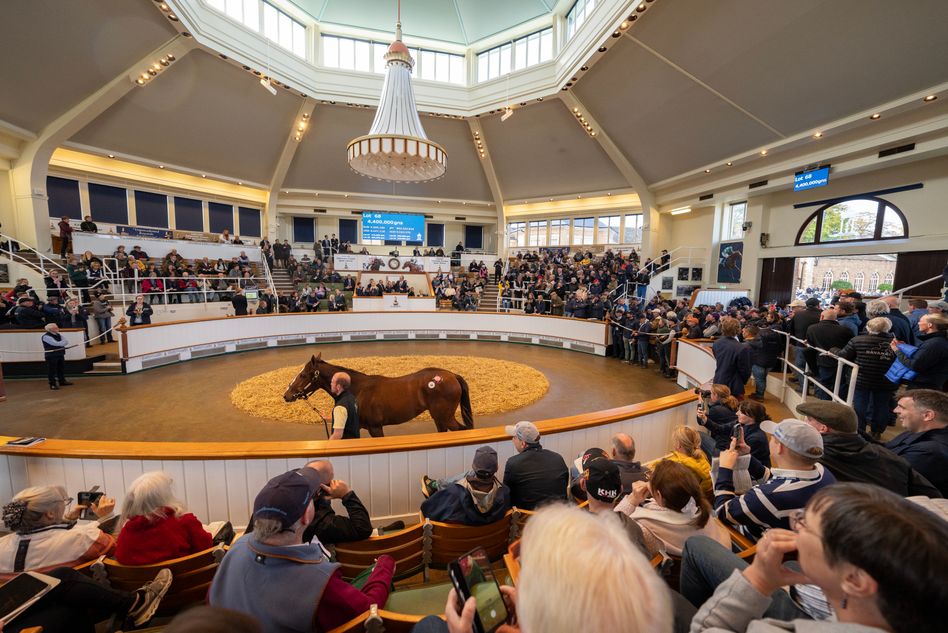The elite world of thoroughbred racing is gearing up for another record-breaking week as the Tattersalls Book 1 sale begins in Newmarket. With 26 yearlings sired by the legendary Frankel listed in the catalogue, some of the wealthiest owners in sport, including prominent Premier League figures, are expected to drive prices to dizzying heights once again.
Last year’s event saw 345 yearlings sold for a record 127 million guineas (£134 million), a 33% increase from the previous year. The surge was largely fueled by the extravagant spending of Amo Racing, fronted by Kia Joorabchian and backed by investors such as Nottingham Forest owner Evangelos Marinakis and Qatar-based Al Shaqab Racing. Their 22.9 million-guinea spree led to 25 horses joining their stable, including several million-pound purchases.
However, the returns on that spending have been mixed. The most expensive lot, a Frankel filly purchased for 4.4 million guineas and named Partying, has yet to make her debut. Other big-money buys, such as Alpinara and Poker, have also failed to make an impact on the track. Only Ancient Egypt, bought for 1.1 million guineas, has managed a win — and even that was followed by a disappointing performance in higher-class company.
Meanwhile, more modest purchases have proven their worth. Venetian Sun, acquired for just 240,000 guineas by Brighton owner Tony Bloom, triumphed in the Albany Stakes at Royal Ascot. Another standout, Distant Storm, was picked up for a mere 90,000 guineas before being resold for €1.9 million after an impressive debut — a reminder that success in racing is about sharp judgment, not just deep pockets.
As Tattersalls prepares for another high-stakes week, Amo Racing and its backers are expected to return for a fresh spending spree, promising another display of extraordinary wealth in the sales ring.
Beyond the glamour, the industry faces ongoing uncertainty about government plans for gambling taxation. A new proposal from Plumpton Racecourse advocates a “rebalancing” of betting taxes to secure fairer funding for horse racing, suggesting a shift in levy rates to raise an additional £130 million annually for the sport. With Britain’s racing economy valued at £4 billion and supporting 80,000 jobs, the stakes at Tattersalls this week extend far beyond the auction ring.

